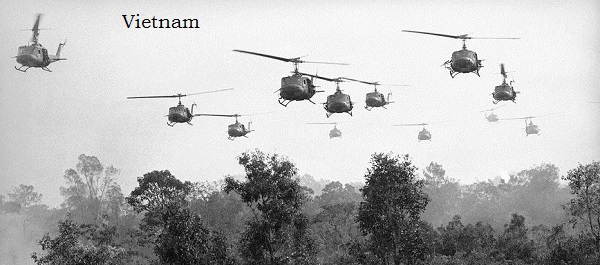


Cerro Gordo County Iowa
Part of the IAGenWeb Project
|
The Globe-Gazette
 The Globe Gazette will publish 50 stories — starting on Veterans Day — about North Iowa’s Vietnam Veterans. The stories will appear on Sundays and Wednesdays. We’ll culminate this "They Served With Honor" project with a special section (publishing on the day before Memorial Day) that will include all of the profiles. It will be great keepsake and resource for family members, educators and part-time historians.
by Molly Montag, February 07, 2016

"Everybody got drafted into the Army, and Fort Carson (Army base) wasn't too far away and all the (Army) guys, we called 'em doggies, they came to town and was dating all our girls in high school," Martinez, now of Mason City, said with a laugh. "We didn't like that, so I said, ' I ain't gonna be a doggie,' so the judge said that would be fine, but I had to do four years in the Marines. "So I was in for four years instead of two, like the draft, and I ended up doing six." In those six years he would go from the jungles of Vietnam to the rubble of a devastating earthquakein Managua, Nicaragua. He was sent to Vietnam in 1970 as a member of a Combined Action Program, or CAP, unit. The program sent small teams to help protect Vietnamese villages from attacks from the Viet Cong communist fighters (VC) and to help with local projects. American troops killed many of the VC in response to the Tet Offensive, a series of coordinated attacks by VC and North Vietnamese military in 1968, but remaining communists were terrorizing villages, Martinez said. Decades later, Martinez is still distrubed by the horrors the VC inflicted on the villagers. "They would attack villages, rape, pillage, kill, murder," he said. "They're the same as ISIS is right now. That's the kind of people the VC were." Many of the VC's operations were hit-and-run attacks, which meant Martinez and his comrades had to go after them. "I humped a lot of hills," he said. "We tracked them down and we went to a lot of different villages all the way from Phu Bai up north all the way down to the Khe Sanh Valley. "Basically, our job was to hunt them down and kill 'em. Period," he said. "They're just like ISIS. You don't keep these kind of guys. What they did to kids and women was totally appalling." It's the children and villagers that stand out the most to Martinez. The children would chant, "Marines No. 1!" Women inthe village said, "Marines Dinky Dau," he said. The latter translates into "Marines crazy," Martinez explained. He was fascinated by the culture - it was the first time Martinez, a Wyoming native, heard about Buddha - and the people he met in the villages. "It was really unique listening to the kids. And the girls, there was girls there that, at 17, 18 years old, they knew much about weapons," he said. "They protected their own villages and that's who we worked with to teach them to take care of themselves." He stayed in Vietnam for just over a year, then returned to the United States. Martinez worked as a Marines range coach and later got clearance to join the Marine Security Guard, which provides security at American embassies and consulates. He almost ended up back in Vietnam, in Saigon, but that was now an in-demand post. "There was people fighting to go to Vietnam. They wanted to go there," he said. "They wanted to serve there and I'd already been there so someone took that spot." He almost got sent to the northwest African nation of Mali, but instead was assigned to the Central American city of Managua, Nicaragua. "A sergeant was getting married down in Nicaragua and they needed a sergeant down there, so they changed me to Managua - which I went all over the map of Africa to look for," he said. It turned out to be a pivotal assignment. That's where he met his wife, Minon. They both survived Managua's devastating earthquake in 1972. Officials say 3,000 to 7,000 residents were killed. 15,000 were hurt and three-quarters of the city's population was left homeless. Because people were buried inmass graves the exact death toll is unknown. Martinez saw those graves. "You wanna talk about war zone. That was terrible," he said. "Mother Nature can get ticked off. People don't realize how mean an earthquake is." These days, Martinez is in the roofing business. He runs Mason City Roofing and also serves as the main coordinator for Mason City's Marine Toys for Tots program. And, all his roofing bids bear the Marine Corps motto: Semper Fidelis: Always Loyal.
Photograph courtesy of Globe-Gazette
|